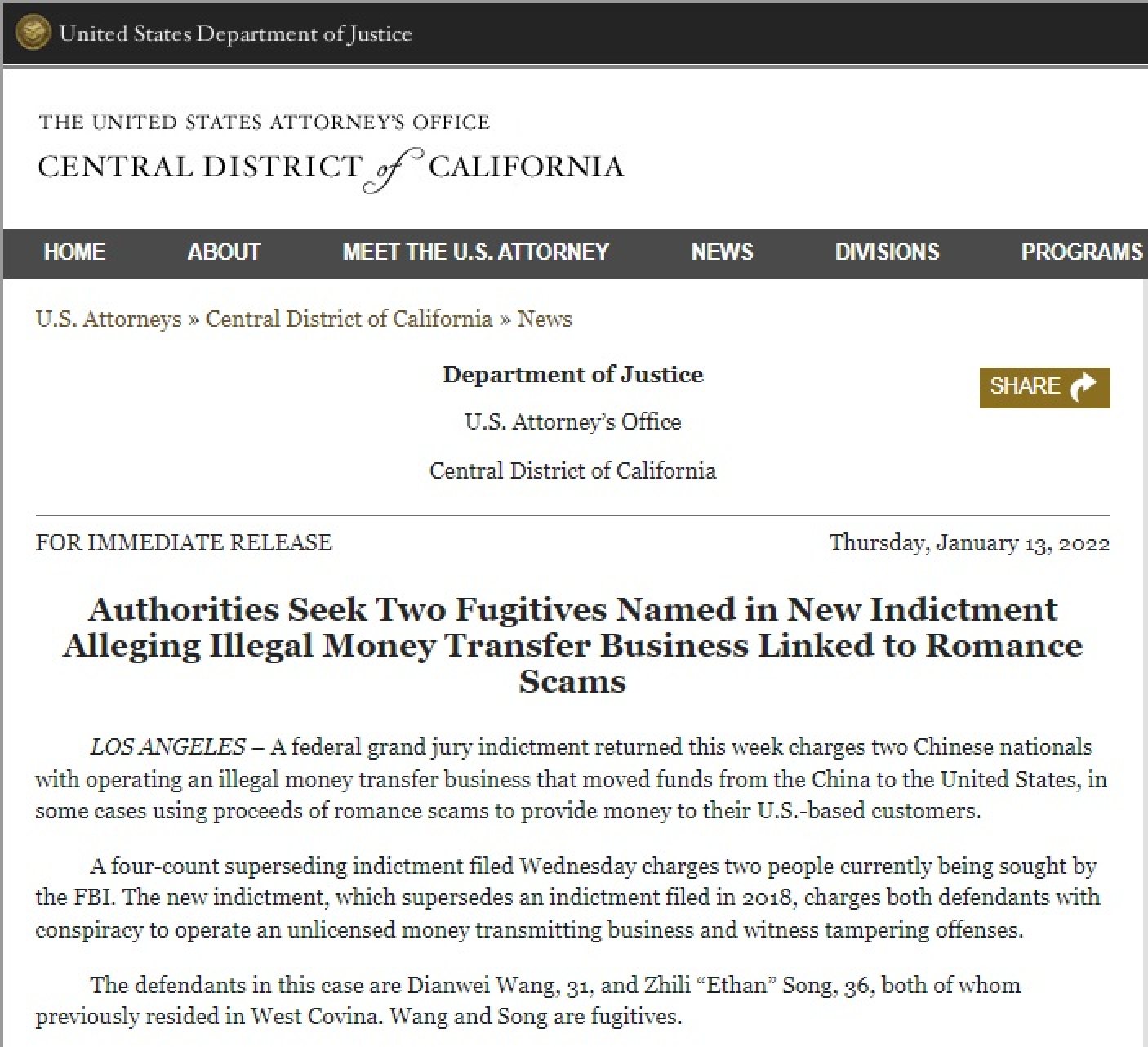
FBI on hunt for Chinese duo over US$2 million in illegal money transfers from China to US
- Wang Dianwei, 31, and “Ethan” Song Zhili, 36, are accused of running a California-based underground banking network to move funds from China
- The source of the money deposited in the US included romance scams targeting older victims
The FBI is searching for two Chinese citizens accused of running an illegal money transfer business in Southern California.
A federal indictment filed on Thursday charges Wang Dianwei, 31, and “Ethan” Song Zhili, 36, both formerly of West Covina, with conspiracy to operate an unlicensed money sending business and obstruction of justice. Both men are also separately charged with witness tampering.
Wang’s and Song’s whereabouts are not known and they are considered fugitives, according to the US attorney’s office for the Central District of California.
The men allegedly ran an “informal value transfer system”, a kind of underground banking network that they used to move money from China to the US, prosecutors said.
Vancouver, a Chinese money-laundering byword, tries to flip the script
According to the indictment, Wang and Song told their customers to make deposits into Chinese bank accounts the men controlled or had access to, and agreed to deposit the equivalent amount of US dollars, minus a fee, in American bank accounts set up by the customers.
From April to December 2017, the men transferred or attempted to transfer about US$2 million from China to the US, according to the indictment. To fulfil their agreements, Wang and Song used money they got from third parties, including romance scams, as a source for the dollars they deposited into US accounts, according to the indictment.
The scams involved creating fake accounts on dating sites or social media platforms to trick victims, often older adults, into believing they had a relationship with the scammer, who persuaded victims to send them money, according to the indictment.
“Wang allegedly directed people associated with the online scammers to send him checks or wire him funds derived from romance scam victims, most of whom were older adults,” prosecutors said. “In some cases, Wang allegedly directed the people associated with scammers to have victims send checks directly to him.”

The scams netted nearly US$1.1 million over six months in 2017, prosecutors said. Wang and Song are also accused of lying to the FBI in late 2017 when agents asked them about wire transfers to a Chinese citizen who was living in Southern California, prosecutors said.
“Both defendants are charged with conspiracy to obstruct justice for telling the third Chinese national to falsely tell the FBI that she was buying a house with Wang as a way of explaining the wire transfers and supporting their own false statements to FBI agents,” prosecutors said.
Authorities seized more than US$450,000 from the third person’s accounts, prosecutors said.
The FBI previously seized about US $1.9 million from accounts controlled by Wang, Song and other Chinese nationals, prosecutors said.
Romance scam victims in Hong Kong conned out of more than HK$288 million
Of that total, US$376,000 has been forfeited. Authorities intend to seek forfeiture of the remaining money.
According to prosecutors, conspiracy to operate an unlicensed money sending business carries a maximum sentence of five years in federal prison.
The obstruction of justice and witness tampering charges each carry a maximum sentences of 20 years, they said.
Anyone with information on Wang’s or Song’s whereabouts should call their local FBI office, or nearest US embassy or consulate.

